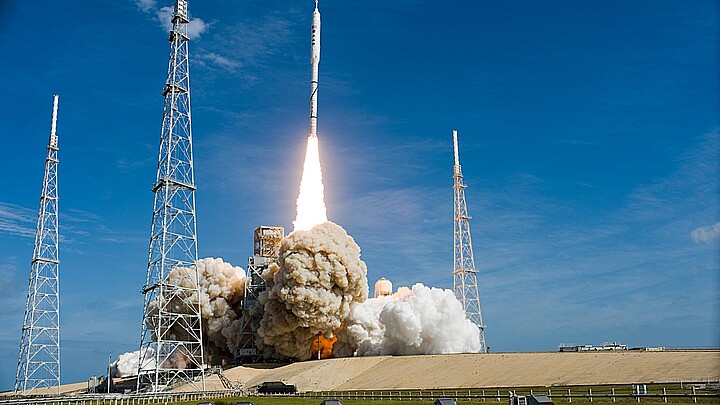Technology
Scrubbed: NASA postpones launch of Artemis I moon rocket
The space agency’s uncrewed mission was hoping to lift off Monday morning, but was postponed after NASA detected an engine issue related to rocket propellant
August 29, 2022 11:57am
Updated: August 29, 2022 11:57am
NASA’s postponed the launch of its new lunar rocket Monday morning after an engine issue continued to raise concerns.
The space agency, which was geared up for the historic launch was a disappointment to thousands of Space fans who traveled across the Florida, and in some cases, the country to see the first mission to the moon in 50 years.
That list included Vice President Kamala Harris and her husband, Douglas Emhoff who joined the many watchers across the launch pad at the Kennedy Space Center.
Despite the disappointment, NASA administrator, former astronaut and Florida Sen. Bill Nelson said it was better to be safe than sorry.
“You don’t want to light the candle until it is ready to go,” he said in a delivery transmitted by NASA Television just after the postponement was announced. “It’s just part of space business.”
Monday’s launch was going to send the Artemis I rocket, a 322 foot craft designed to take astronauts to the moon in the near future, up for a crucial test flight.
The space agency said there are potential opportunities to try the launch again next weekend, but that time frame is based on the current engine complications being resolved, otherwise the temperature shock of super cold propellants could cause shrinkage of metal engine parts.
Reports indicated that a liquid hydrogen line did not cool one of the rocket’s four core-stage engines, part of the planning before ignition.
Such problems are not uncommon during initial launches. When NASA first tried to launch the Space Shuttle in its debut 1981 mission, the flight was cancelled during the countdown, but successfully launched two days later.
The Artemis countdown started Saturday, but there were concerns that nearby lightning storms could cause an eventual delay on Monday. That prediction was borne out Monday morning as area storms forced NASA personnel to wait 45 minute before adding 700,000 more gallons of liquid hydrogen and oxygen to the Artemis’s propellant fuel tanks.
A leak in the fuel line caused similar delay during a test countdown in April, a reoccurring problem that prompted NASA to add a “chill-down test” for Monday’s countdown.
Engineers fixed that problem, and both liquid hydrogen and oxygen reportedly was successfully diverted to the flow around the rocket’s four engines before this morning’s planned ignition. All those oxygen lines all worked, and three of the hydrogen lines were functioning, leaving one liquid hydrogen line failing to cool one of the rocket’s four core-stage engines, raising alarms before ignition.
There were several attempts to detect why the cooling of the line failed, and finally the mission was temporarily scrubbed.










